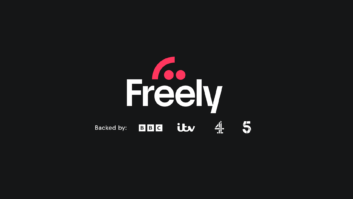The government’s plan to sell off broadcaster Channel 4 has been met with dismay by many within the UK’s TV industry.
In a series of tweets, the UK’s culture secretary Nadine Dorries said she has come to the conclusion that “government ownership is holding Channel 4 back from competing against streaming giants like Netflix and Amazon”.
“A change of ownership will give Channel 4 the tools and freedom to flourish and thrive as a public service broadcaster long into the future. I will set out the future plan for Channel 4 in a White Paper in due course,” added Dorries.
Lucy Powell, Labour shadow culture secretary, described the move as “cultural vandalism”, a sentiment that has been echoed by many of the move’s critics.
Former culture secretary Jeremy Hunt and ex-Scottish Conservative leader Ruth Davidson have also expressed their displeasure at the plans.
Davidson said on Twitter: “Channel 4 is publicly owned, not publicly funded. It doesn’t cost the tax payer a penny. It also, by charter, commissions content but doesn’t make/own its own. It’s one of the reasons we have such a thriving indy sector in places like Glasgow. This is the opposite of levelling up.”
Meanwhile, former cabinet minister Damian Green also described the idea as “very unconservative” and that “Mrs Thatcher, who created it, never made that mistake”.
Dorothy Byrne, the former head of news and current affairs at Channel 4, described the government’s plans to privatise the network to “throw a bit of red meat to Tory supporters”.
“I think the political agenda is to show that the government is doing something radically right-wing to please people. It’s the same agenda as attacking the licence fee,” she told Times Radio.
“It’s that knee-jerk thing, privatise thing, that’s a good thing to do.”
An online petition calling for the government to stop its plans has already reached over 53,000 signatures.
A number of organisations have expressed their dismay at the government’s decision. PACT described the decision as “a levelling down agenda, not levelling up, with big businesses being the ultimate winners to the cost of small, regional indies”.
“Privatising Channel 4 is unnecessary and risks damaging the UK’s world-beating independent TV and film production sector,” added PACT.
“[It] is crucial to our sector, both as a commissioner of programmes and because of its role in helping new businesses get their first break, especially businesses outside the M25.
The National Union of Journalists questioned the motivation behind the decision. Séamus Dooley, NUJ assistant general secretary, said: “One has to question the motivation of replacing that model and leaving a public service broadcaster at the mercy of shareholder control. This would be an unforgivable act of cultural barbarism which demands a vigorous response from all who care about public service broadcasting and independent journalism.”
“Broadcasting policy should not be determined by an apparent obsession with competing with subscription models such as Netflix and Amazon on the part of the culture secretary,” he added. “Does she really want to hand control of Channel 4 to foreign investors or some shady oligarchy with no commitment to the ethos which has been the cornerstone of public service broadcasting in the UK.”
TAC, the trade body for TV production in Wales, warned the development of the UK’s independent production sector is likely to be impacted by Channel 4’s privatisation. “This could be lost if it leaves public ownership and refocuses on redistributing profits to private owners and shareholders,” said Dyfrig Davies, chair of TAC.






